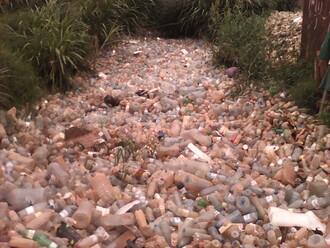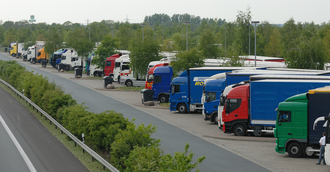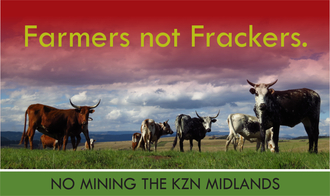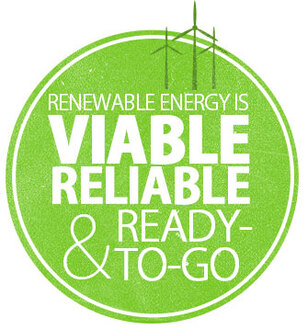-
NON A L'EXPLOITATION ILLICITE DE BOISPar ce que ils exploitent sans tenir compte des méthodes d'exploitation durable. ils ne reboisent pas, ils coupent les espèces sans tenir compte de leur valeur écologique, économique, culturelle, sociale et ou alimentaire. ils échappent aux impôts et la population locale ne trouve pas profit de cette exploitation, ça crée également des conflits33 of 100 SignaturesCreated by MOMBOLO CHRISTIAN
-
non a la proliferation des bouteilles plastiques dans les grandes villes du camerounce sujet est très important parce que les camerounais consommateurs de ces produits et les entreprises camerounaise qui produisent ces bouteilles n'ont pas encore eu un appercu de l'ampleur de ce phénomène. vous n'avez qu'a faire un tour dans les bas fond de la ville de Yaoundé pour voir des monticules de milliers de bouteilles qui enlaidissent le paysage.j'aimerais inculquer a mes frères camerounais la notion de recyclage qui est important dans une société qui se dit émmergéante en 2035 car recycler ces bouteilles plastiques peu aider a produire d'autres objet . ces bouteilles peuvent servir de matières premières a d'autres industries pensons -y.85 of 100 SignaturesCreated by mangwa alain christian
-
BAN NON BIODEGRADABLE PLASTICSIt is necessary that towards the Sustainable Development goals, we focus on sustaining our environment. Proper waste management is key in curbing pollution and ensuring sustainable environments for urban and rural development. Plastic bags and plastic products have become a menace in Kenya with cities like Nairobi experiencing floods due to blocked drainage by plastics. The pollution from burning of these products have further increased the effects of greenhouse gases. Banning use of non bio-degradable plastics is a necesaary step towards environmental sustainability.188 of 200 SignaturesCreated by Oduor Atieno
-
Pour une meilleure gestion des ordures ménagères à Saint-LouisBien qu’inscrite au Patrimoine Mondial de l’Humanité (UNESCO), bien qu’ancienne capitale de l’AOF et considérée comme capitale culturelle du Sénégal, malgré la présence de plusieurs réserves naturelles protégées sur son territoire étendu, la Ville de St-Louis croule aujourd’hui littéralement sous les déchets. Les déchets sont les premiers à nous accueillir à Saint-Louis, ils jalonnent notre chemin dans la ville, ils défigurent les paysages pourtant paradisiaques, ils contaminent notre fleuve duquel est extrait l’eau que nous buvons, ils ulcèrent les espèces terrestres qui nous nourrissent, ils font le foyer de maladies graves pour ceux qui n’ont pas accès à la salubrité, ils contaminent les sols pour les décennies à venir, ils étouffent les espèces terrestres et marines protégées qui viennent ici nicher, ils marquent à jamais négativement le touriste et donne une idée bien triste de l’Afrique. Ils sont notre quotidien et nous pourrions être tentés de croire qu’il s’agit ici d’une cause perdue. Nous, résidents de la Ville de Saint-Louis du Sénégal, nous nous y refusons !55 of 100 SignaturesCreated by Latrubesse Maya
-
Take action to stop sewage pollution of the Hennops riverSouth Africa's water recourses are scarse and threatened, all our rivers need to be protected. The water quality of the Hennops River at present is comparable to raw sewage, the acceptable ratio of E. coli is 1000 units per 100 ml ,at present it is 1000 000 units per 100 ml. The Hennops River is part of the greater Crocodile river system.569 of 600 SignaturesCreated by Paul Maartens
-
Save The Vaal Dam & River - South Africa - Free StateTo prevent human and animals from contracting viral and bacterial infections. this will have a negative long term effect on millions of species to put it mildly.2,917 of 3,000 SignaturesCreated by Bertram Carroll
-
ALGERIA: No to Shell Gas in AlgeriaIt is so important to ask and act so that tests for shell gas stop in the Sahara of Algeria, the Greatest Sahara in the World, a Beautiful Place, full of life, there, we can find the Largest reserve of Underground Water, adding to that, people there suffered 50 years ago from Nuclear Tests done by the French, so it must be stopped now.52 of 100 SignaturesCreated by Menad BOUHAS
-
REDUCE THE TRUCK CAUSED AIR POLLUTION IN EUROPEA huge amount of in- and exports across the countries are done by trucks. These trucks cause air pollution, noise and worsen street conditions. Nowadays everyday products are ordered on the internet from all over the world and far distances of transportation is not a big deal anymore . An investment in better infrastructure can ensure cleaner air, and renew and expend the rail links. When more people will go by train rail ticket are easier to afford and it will decrease the need of a car. Unfortunately the costly car is still a must for more rural areas. I am a passionate biker and hate to suffocate on the exhaust fumes of vast trucks.35 of 100 SignaturesCreated by Sebastian Schluckner
-
SOUTH AFRICA: Keep Fracking Out of the Drakensberg & KarooThe Drakensberg is the source of water on which over 5 million people, in cities like Estcourt, Howick, Pietermaritzburg & Durban, depend on for their water supply. If Fracking is permitted all life in our province stands to be jeopardised. Each fracking well uses between 6 and 25 million litres of water and up to 150 000kgs of sand to create cracks in the rocks and release the gas. Farming in the Drakensberg & Karoo will also be destroyed if the water is polluted, affecting our food supply and raising food prices considerably. We are a water scarce country which has abundant sunlight - surely we should capture this source of energy rather than destroy our water supply? Technical Cooperation Permits have been issued to Rhino Oil and Gas and Sungu Sungu to explore the possibilities of extracting shale gas in Balgowan, Kamberg, Karkloof and surrounding areas.1,238 of 2,000 SignaturesCreated by Sherebanu Kajee
-
CAMEROON: Stop Overgrazing in MbengwiThis would improve on the food situation as water catchments which are drying up will come back supplying the much needed water for agriculture. Food security would be guaranteed and social conflicts which are on the rise in Mbengwi, North West Cameroon would be checked.162 of 200 SignaturesCreated by Christopher FON ACHOBANG
-
Stop releasing balloons in memory of....Releasing balloons is harmful to wildlife and marine life.. Balloon cause birds and other marine life to starve to death because they swallow the balloons and can not eat. The strings get tangled branches and catch birds and they can't get out and starve or are hurt.175 of 200 SignaturesCreated by Joan Kolessar
-
SOUTH AFRICA: Renewable Energy RSAThe energy crisis in South Africa is reaching tipping point, economic growth has slowed down and the prices of electricity are rising shaper as there is no competitor to Eskom.258 of 300 SignaturesCreated by Dumisani Sibusiso Thwala








.jpg)



